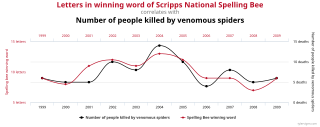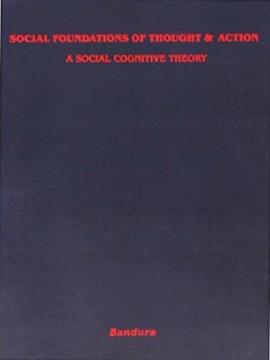
Research is "creative and systematic work undertaken to increase the stock of knowledge". It involves the collection, organization, and analysis of evidence to increase understanding of a topic, characterized by a particular attentiveness to controlling sources of bias and error. These activities are characterized by accounting and controlling for biases. A research project may be an expansion of past work in the field. To test the validity of instruments, procedures, or experiments, research may replicate elements of prior projects or the project as a whole.

An academic journal or scholarly journal is a periodical publication in which scholarship relating to a particular academic discipline is published. They serve as permanent and transparent forums for the presentation, scrutiny, and discussion of research. They nearly universally require peer review for research articles or other scrutiny from contemporaries competent and established in their respective fields.

Scientific literature encompasses a vast body of academic papers that spans various disciplines within the natural and social sciences. It primarily consists of academic papers that present original empirical research and theoretical contributions. These papers serve as essential sources of knowledge and are commonly referred to simply as "the literature" within specific research fields.
In published academic research, publication bias occurs when the outcome of an experiment or research study biases the decision to publish or otherwise distribute it. Publishing only results that show a significant finding disturbs the balance of findings in favor of positive results. The study of publication bias is an important topic in metascience.
Theoretical psychology is concerned with theoretical and philosophical aspects of psychology. It is an interdisciplinary field with a wide scope of study.

Data dredging is the misuse of data analysis to find patterns in data that can be presented as statistically significant, thus dramatically increasing and understating the risk of false positives. This is done by performing many statistical tests on the data and only reporting those that come back with significant results.

Grounded theory is a systematic methodology that has been largely applied to qualitative research conducted by social scientists. The methodology involves the construction of hypotheses and theories through the collecting and analysis of data. Grounded theory involves the application of inductive reasoning. The methodology contrasts with the hypothetico-deductive model used in traditional scientific research.

Mathematical sociology is an interdisciplinary field of research concerned with the use of mathematics within sociological research.

Evolution and Human Behavior is a bimonthly peer-reviewed academic journal covering research in which evolutionary perspectives are brought to bear on the study of human behavior, ranging from evolutionary psychology to evolutionary anthropology and cultural evolution. It is primarily a scientific journal, but articles from scholars in the humanities are also published. Papers reporting on theoretical and empirical work on other species may be included if their relevance to the human animal is apparent. The journal was established in 1980, and beginning with Volume 18 in 1997 has been published by Elsevier on behalf of the Human Behavior and Evolution Society. The editor-in-chief is Debra Lieberman.
Floyd Henry Allport was an American psychologist who is often considered "the father of experimental social psychology", having played a key role in the creation of social psychology as a legitimate field of behavioral science. His book Social Psychology (1924) impacted all future writings in the field. He was particularly interested in public opinion, attitudes, morale, rumors, and behavior. He focused on exploration of these topics through laboratory experimentation and survey research.

The Journal of Personality and Social Psychology is a monthly peer-reviewed scientific journal published by the American Psychological Association that was established in 1965. It covers the fields of social and personality psychology. The editors-in-chief are Shinobu Kitayama, Colin Wayne Leach, and Richard E. Lucas.
The Journal of Abnormal Psychology is a peer-reviewed academic journal published by the American Psychological Association (APA). The journal has been in publication for over 110 years, and it is considered to be a "preeminent outlet for research in psychopathology". Beginning in 2022, the journal will be known as the Journal of Psychopathology and Clinical Science.

The Society for Personality and Social Psychology (SPSP) is an academic society for personality and social psychologists focused on promoting scientific research that explores how people think, behave and interact. It is the largest organization of social psychologists and personality psychologists in the world. SPSP was founded in 1974 and it manages the activities of Division 8 of the American Psychological Association.
Psychology encompasses a vast domain, and includes many different approaches to the study of mental processes and behavior. Below are the major areas of inquiry that taken together constitute psychology. A comprehensive list of the sub-fields and areas within psychology can be found at the list of psychology topics and list of psychology disciplines.

Social Foundations of Thought and Action: A Social Cognitive Theory is a landmark work in psychology published in 1986 by Albert Bandura. The book expands Bandura's initial social learning theory into a comprehensive theory of human motivation and action, analyzing the role of cognitive, vicarious, self-regulatory, and self-reflective processes in psychosocial functioning. Bandura first advanced his thesis of reciprocal determinism in Social Foundations of Thought and Action.
Scholarly peer review or academic peer review is the process of having a draft version of a researcher's methods and findings reviewed by experts in the same field. Peer review is widely used for helping the academic publisher decide whether the work should be accepted, considered acceptable with revisions, or rejected for official publication in an academic journal, a monograph or in the proceedings of an academic conference. If the identities of authors are not revealed to each other, the procedure is called dual-anonymous peer review.

The replication crisis is an ongoing methodological crisis in which the results of many scientific studies are difficult or impossible to reproduce. Because the reproducibility of empirical results is an essential part of the scientific method, such failures undermine the credibility of theories building on them and potentially call into question substantial parts of scientific knowledge.

Vladimir J. Konečni is an American and Serbian psychologist, aesthetician, poet, dramatist, fiction writer, and art photographer, currently an Emeritus Professor of Psychology at the University of California, San Diego.
Thomas Teo is a Canadian professor of Historical, Theoretical, and Critical Studies of Psychology at York University in Toronto, Canada. He is a leader in the fields of critical psychology and theoretical psychology.

European Review of Social Psychology (ERSP) is an annual peer-reviewed scientific journal which publishes review articles in the field of social psychology. It was established in 1990 and is published by the Taylor & Francis imprint Psychology Press under the auspices of the European Association of Social Psychology. The editors-in-chief are Miles Hewstone and Antony Manstead. According to the Journal Citation Reports, the journal has a 2016 impact factor of 1.389.











